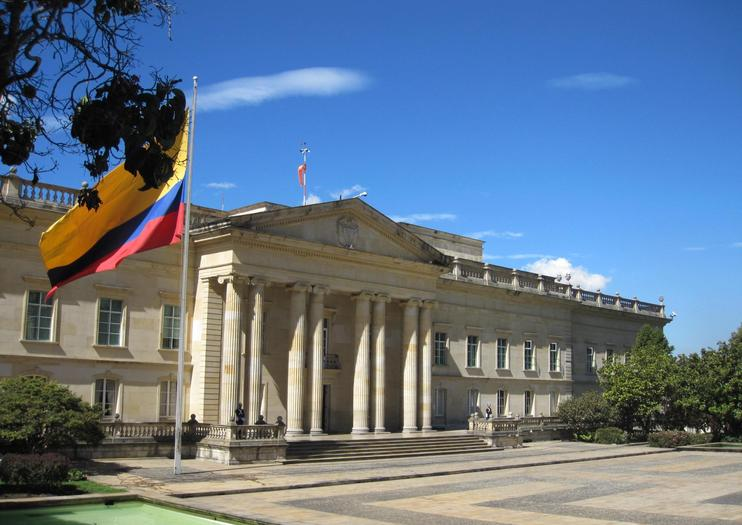By Nehomar Hernández*
(Opinion) Barely four months after his victory in Colombia’s presidential election, Gustavo Petro has begun to push through most of the radical goals he campaigned on with astonishing speed.
Regularizing relations with Maduro’s tyranny, pushing for tax reform, and lobbying for the decriminalization of marijuana trafficking – and who knows if that won’t also lead to the decriminalization of coke – are just a few examples of the changes Petro has pushed through in his first days in the Casa de Nariño.
However, the issue that Petro has placed the most emphasis on during these months is undoubtedly the legalization of the status of the terrorist groups that have threatened the lives of Colombians for decades.

The leftist leader’s so-called “total peace” project has become the spearhead of a policy that, under the umbrella of talks sponsored by Cuba and Venezuela, aims to come clean with criminal guerrillas like the National Liberation Army (ELN).
The game is simple: grant maximum impunity to these groups amid their transition to a “civilized life,” repeating what Juan Manuel Santos set in motion with the Revolutionary Armed Forces of Colombia (FARC) in 2016.
With this in mind, the Colombian Senate passed the Public Order Law on Monday, transforming Petro’s “total peace” project into a state policy.
Thus, the text becomes an instrument for the president to advance his negotiations with ELN criminals.
The law is now being debated in the Chamber of Deputies, where Petrismo appears to have the necessary votes to make it a reality.
Criticism of this initiative has come mainly from the ranks of the Democratic Center, where Senator María Fernanda Cabal expressed concern that Colombia could now be seen internationally as a country that gives carte blanche to criminal organizations to carry out their activities without being punished if they subsequently negotiate a ceasefire with the state.
For Cabal, the issue, in any case, is that Petro is increasing the incentives for crime by promoting a policy of impunity.
“I fear that in this globalized world, all criminals will enter the paradise of total impunity because we must not forget that language can also be used as a weapon of war. Total peace? Total peace looks to me like the peace of Maduro or the Castro brothers,” says the conservative MP.
Another Conservative leader and former presidential candidate, Enrique Gómez, denounced the “surrender” of the country to criminals favored by the Historical Pact, amid a system in which the prosecution of lawbreakers in Colombia has been completely relaxed.
¿Paz total? A mí la paz total se me parece a la paz de Maduro o a la paz de los Castro.
Intervención en el debate sobre Ley de Orden Público, Plenaria de Senado pic.twitter.com/25uASRkzJV
— María Fernanda Cabal (@MariaFdaCabal) October 24, 2022
“Not only does he do what he wants with the law, but with each passing day, he hands over part of the country to narco-guerrillas, child molesters, murderers, and kidnappers. The unbelievable thing is that the Petristas are not ashamed to be part of a plan to erase Colombia,” says Gómez, referring to the leftist Colombian government’s “total peace initiative.”
The promotion of impunity for leaders of terrorist groups is evident in the fact that just this week, the Special Jurisdiction for Peace (JEP) decided to grant amnesty to one of the FARC’s historical leaders, Rodrigo Granda.
Among many other crimes, the organization’s former “chancellor” is accused of being the mastermind behind the kidnapping and subsequent murder of Cecilia Cubas, the daughter of former Paraguayan President Raúl Cubas, in March 1999.
According to Semana magazine, the new beginning in the Granda case involves much more than a simple amnesty, as the JEP has decided to remove the 73-year-old ex-guerrilla from the databases of the Attorney General’s Office, the National Police, the Attorney General’s Office, and the National Penitentiary Institute, thus giving him room for a fresh start.
Even if one could see this in an eminently legalistic reading, one would miss much of its importance.
The core is that at the very time that the possibility of the political system giving Petro a free hand to negotiate with terrorism is being discussed, a measure is being created that grants far-reaching benefits to a historic leader of the FARC.
Coincidence seems rather unlikely in this case.
Is absolute and unqualified surrender to narcoterrorism the only way for Colombia to solve the problem of historical violence emanating from these groups?
This is a question that Colombians will have to answer in the future.
However, Petro has already begun to do so by compromising with those who have sown destruction and death in the South American country.
* Venezuelan journalist (Universidad Central de Venezuela) and Master in Political Science (Universidad Simón Bolívar).
He is currently working on his doctoral thesis in Political Science and hosts the radio program “Y Así Nos Va”, on Radio Caracas Radio.

